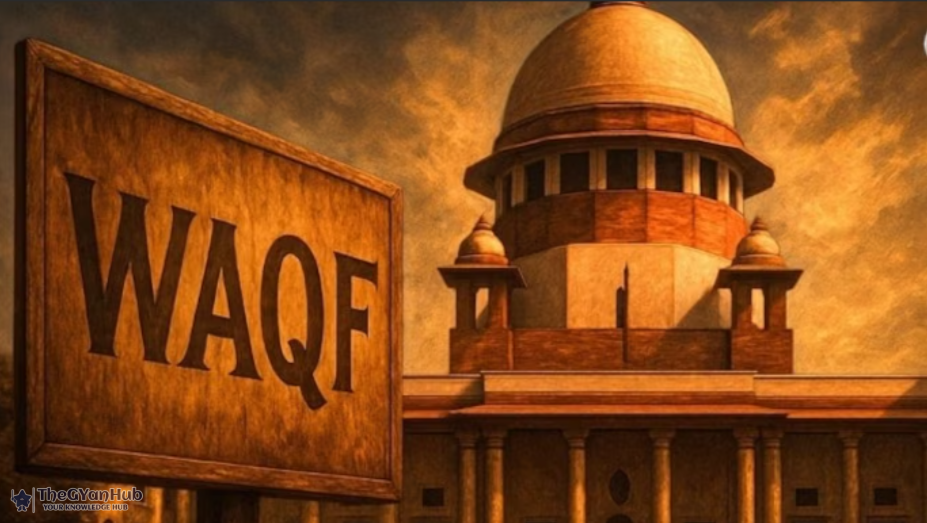I’m a passionate writer who loves exploring ideas, sharing stories, and connecting with readers through meaningful content.I’m dedicated to sharing insights and stories that make readers think, feel, and discover something new.
Introduction
The Supreme Court of India has recently issued a crucial order that halts certain provisions of the Waqf Amendment Act. This decision has sparked widespread discussion and debate across the nation, given the Act's implications on religious and cultural properties.
Background of the Waqf Amendment Act
The Waqf Amendment Act was introduced to streamline the administration of waqf properties across India. Waqf properties are religious endowments in Islamic law, and their management has been a subject of legal scrutiny and reform over the years. The Act aimed to bring about transparency and efficiency in the management of these properties.
However, the Act has faced criticism from various quarters, including religious bodies and legal experts, who argue that some of its provisions infringe upon religious freedoms and property rights.
Key Provisions Stayed
The Supreme Court's decision to stay certain provisions of the Act is seen as a temporary relief for those opposing it. The specific provisions that have been stayed include those related to the powers of the Waqf Board and the process of property registration. These provisions were perceived as controversial due to their potential impact on the autonomy of religious institutions.
Implications of the Supreme Court's Order
The stay order has significant implications for the future of waqf property management in India. It raises questions about the balance between state intervention and religious autonomy. Legal experts suggest that this ruling could lead to a re-evaluation of the Act's provisions to ensure they align with constitutional principles.
Moreover, the decision has been welcomed by various religious organizations, which view it as a safeguard against potential overreach by the state. However, some legal analysts caution that the stay is only a temporary measure, and the final verdict could still uphold the contentious provisions.
Reactions from Stakeholders
The Supreme Court's order has elicited varied reactions from different stakeholders. Religious leaders have praised the decision, viewing it as a protection of religious rights. On the other hand, some government officials have expressed concern over the potential delays in implementing reforms aimed at improving waqf property management.
Religious organizations have called for a comprehensive review of the Act.
Legal experts emphasize the need for a balanced approach that respects both religious freedoms and administrative efficiency.
Policymakers are urged to engage in dialogue with stakeholders to address concerns.
Conclusion
The Supreme Court's stay on key provisions of the Waqf Amendment Act is a pivotal moment in the ongoing debate over religious property management in India. As the legal proceedings continue, stakeholders across the spectrum will be closely monitoring developments. The outcome of this case could set a precedent for future legislation concerning religious and cultural properties.
Further Reading
Related articles in this category

World News
El Mencho Killed: The Fall of Mexico's Most Powerful Drug Cartel
February 23, 2026
The recent killing of Nemesio Rubén Oseguera Cervantes, known as 'El Mencho', has led to significant upheaval in Mexico as the Jalisco New Generation Cartel faces a power vacuum. This article explores the implications of his death on the drug trade and national security.

World News
Sam Altman vs. Sridhar Vembu: A Clash on AI and Human Energy Consumption
February 22, 2026
In a recent discussion, Sam Altman compared the energy consumption of AI systems to that of humans, prompting a strong rebuttal from Sridhar Vembu. This article explores their contrasting views on energy efficiency and sustainability.

World News
Trump's Loss, India's Gain? How Tariff Order Could Affect Trade Talks
February 20, 2026
The US Supreme Court's decision to strike down Trump's Global Tariffs Policy may have significant implications for India, potentially reshaping trade dynamics. As New Delhi navigates this change, the global trade landscape could see a shift in power.
Supreme CourtWaqf Amendment ActIndiareligious propertieslegal newscourt rulingwaqf boardproperty rightsreligious freedomlegal implications






